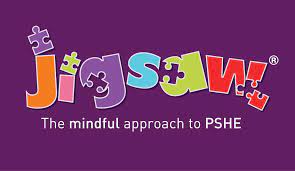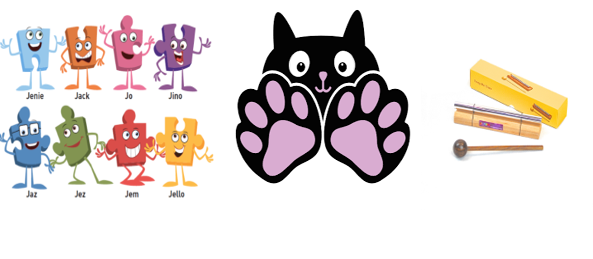PSHE
Our vision: Learning together we will all be exceptional!

We want Sunnyhill pupils to:
-
have the knowledge, skills and understanding to lead confident, healthy and independent lives.
-
know and value who they really are and how they relate to other people in this ever-changing world.
How PSHE is taught at Sunnyhill:
From Year 1 to Year 6 we follow the ‘Jigsaw’ scheme of work. Jigsaw includes all of the statutory requirements for Relationships and Health Education, and Sex Education is also included in the Changing Me Puzzle (unit). Jigsaw has two main aims for all children:
• To build their capacity for learning
• To equip them for life
Jigsaw brings together PSHE Education, compulsory Relationships and Health Education, emotional literacy, mindfulness, social skills and spiritual development. It is designed as a whole school approach, with all year groups working on the same theme (Puzzle) at the same time at their own level. There are six Puzzles (half-term units of work) and each year group is taught one lesson per week. All lessons are delivered in an age- and stage-appropriate way so that they meet children’s needs.
During weekly assemblies a jigsaw theme is discussed and the children are encouraged to live that learning in their behaviour and attitudes throughout the week.
The overview below summarises the content in each of Jigsaw’s units of work (Puzzles):
Being Me In My World covers a wide range of topics, including a sense of belonging, welcoming others and being part of a school community, a wider community, and a global community; it also looks at children’s rights and responsibilities, working and socialising with others, and pupil voice.
Celebrating Difference focuses on similarities and differences and teaches about diversity, such as disability, racism, power, friendships, and conflict; children learn to accept everyone’s right to ‘difference’, and most year groups explore the concept of ‘normality’. Anti-bullying, including cyber and homophobic bullying, is an important aspect of this Puzzle.
Dreams and Goals aims to help children think about their hopes and dreams, their goals for success, what their personal strengths are, and how to overcome challenges, using team-work skills and tasks. There is also a focus on enterprise and fundraising. Children learn about experiencing and managing feelings of pride, ambition, disappointment, success; and they get to share their aspirations, the dreams and goals of others in different cultures/countries, and their dreams for their community and the world. It’s great for children to have this experience, to think ambitiously, and to have aspirations.
Healthy Me covers two main areas of health: Emotional/mental health (relaxation, being safe, friendships, mental health skills, body image, relationships with food, managing stress) and Physical health (eating a balanced diet, physical activity, rest and relaxation, keeping clean, drugs and alcohol, being safe, first aid). Most of the statutory content for Health Education (DfE) is contained within this Puzzle.
Relationships starts with building a respectful relationship with self and covers topics including families, friendships, pets and animals, and love and loss. A vital part of this Puzzle is about safeguarding and keeping children safe; this links to online safety and social networking. Children learn how to deal with conflict, build assertiveness skills, and identify their own strengths and strategies for building self-esteem and resilience. They explore roles and responsibilities in families and friendship groups, and consider stereotypes.
Changing Me deals with change of many types, from growing from young to old, becoming a teenager, assertiveness, puberty, self-respect and safeguarding. Each year group thinks about looking ahead, moving year groups or the transition to secondary school and how to cope positively with such changes. Life cycles and human reproduction are also taught.
Relationships & Sex Education
An important part of the Jigsaw PSHE programme is delivered through the 'Relationships' and 'Changing Me' puzzle pieces which are covered in the summer term.
There are four main aims of teaching RSE:
• To enable children to understand and respect their bodies
• To help children develop positive and healthy relationships appropriate to their age and development
• To support children to have positive self-esteem and body image
• To empower them to be safe and safeguarded.
Each year group will be taught appropriate to their age and developmental stage. At no point will a child be taught something that is inappropriate; and if a question from a child arises and the teacher feels it would be inappropriate to answer, (for example, because of its mature or explicit nature), this information with be shared with you by your child’s class teacher. The question will not be answered to the child or class if it is outside the remit of that year group’s programme.
Below is a summary of RSE coverage within the Jigsaw scheme for each year group:
• Foundation Stage - Growing up: how we have changed since we were babies
• Year 1 - Boys’ and girls’ bodies; naming body parts
• Year 2 - Boys’ and girls’ bodies; body parts and respecting privacy (which parts of the body are private and why this is)
• Year 3 - How babies grow and how boys’ and girls’ bodies change as they grow older
• Year 4 - Internal and external reproductive body parts, body changes in girls and menstruation
• Year 5 - Puberty for boys and girls, and conception
• Year 6 - Puberty for boys and girls and understanding conception to birth of a baby
Further information about how the school approaches the teaching of Relationships and Sex Education can be found in the school’s RHSE policy.
Resources
Each year group has a Jigsaw friend (a jigsaw-shaped soft toy used as a teaching aid), Jigsaw Chimes and Jigsaw Jerrie Cats (used to help and encourage calming and mindfulness practice). Every Jigsaw lesson includes mindfulness practice. Mindfulness is being able to observe your own thoughts and feelings as they happen, in the present moment, applying no judgement. Jigsaw teaches children to understand their thoughts and feelings through the Calm Me time exercises (using the Jigsaw Chime) and Pause Points (using Jigsaw Jerrie Cat). This helps to develop their awareness, and their capacity to be mindful human beings. Learning is thus enhanced as emotions and behaviour are self-regulated.

